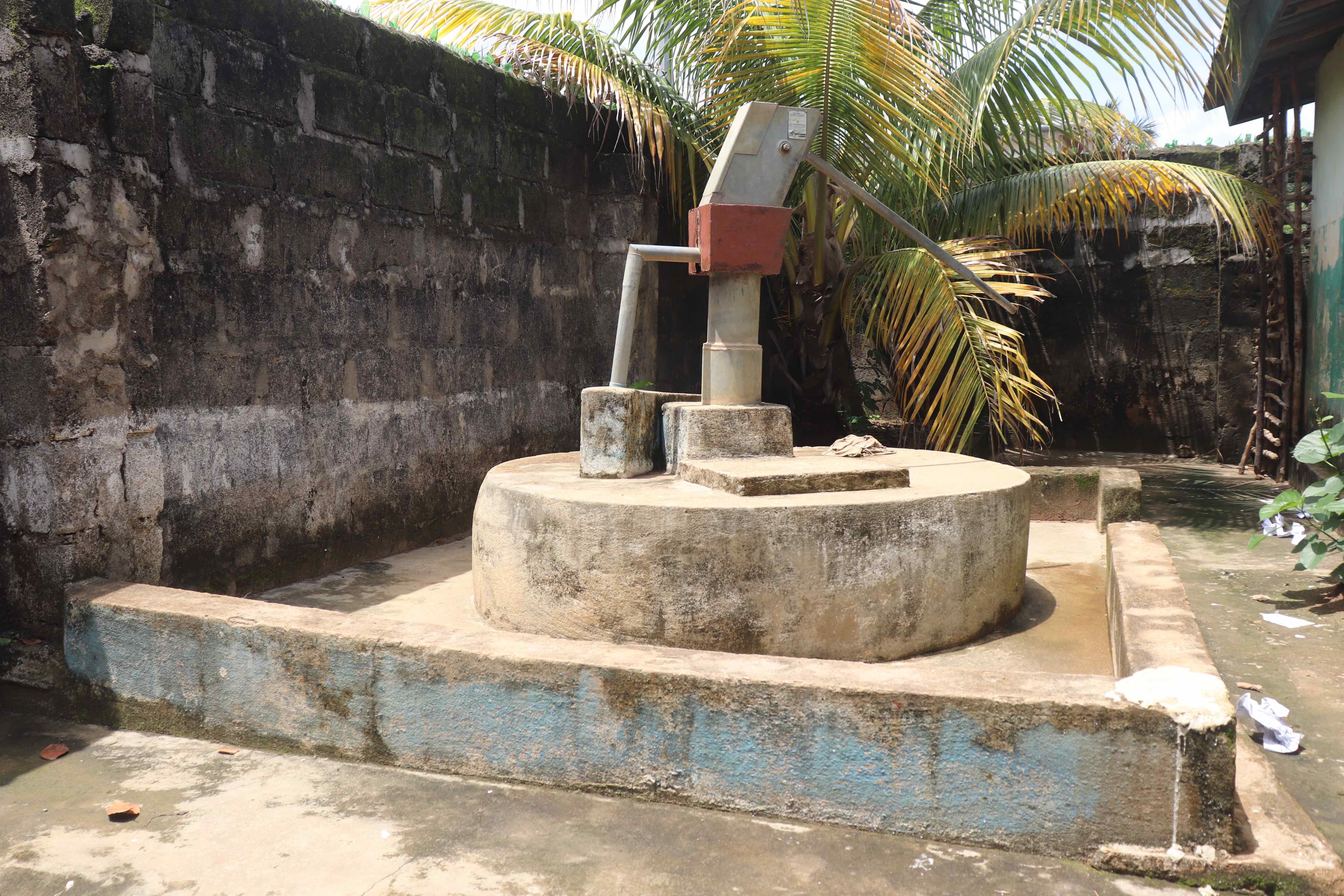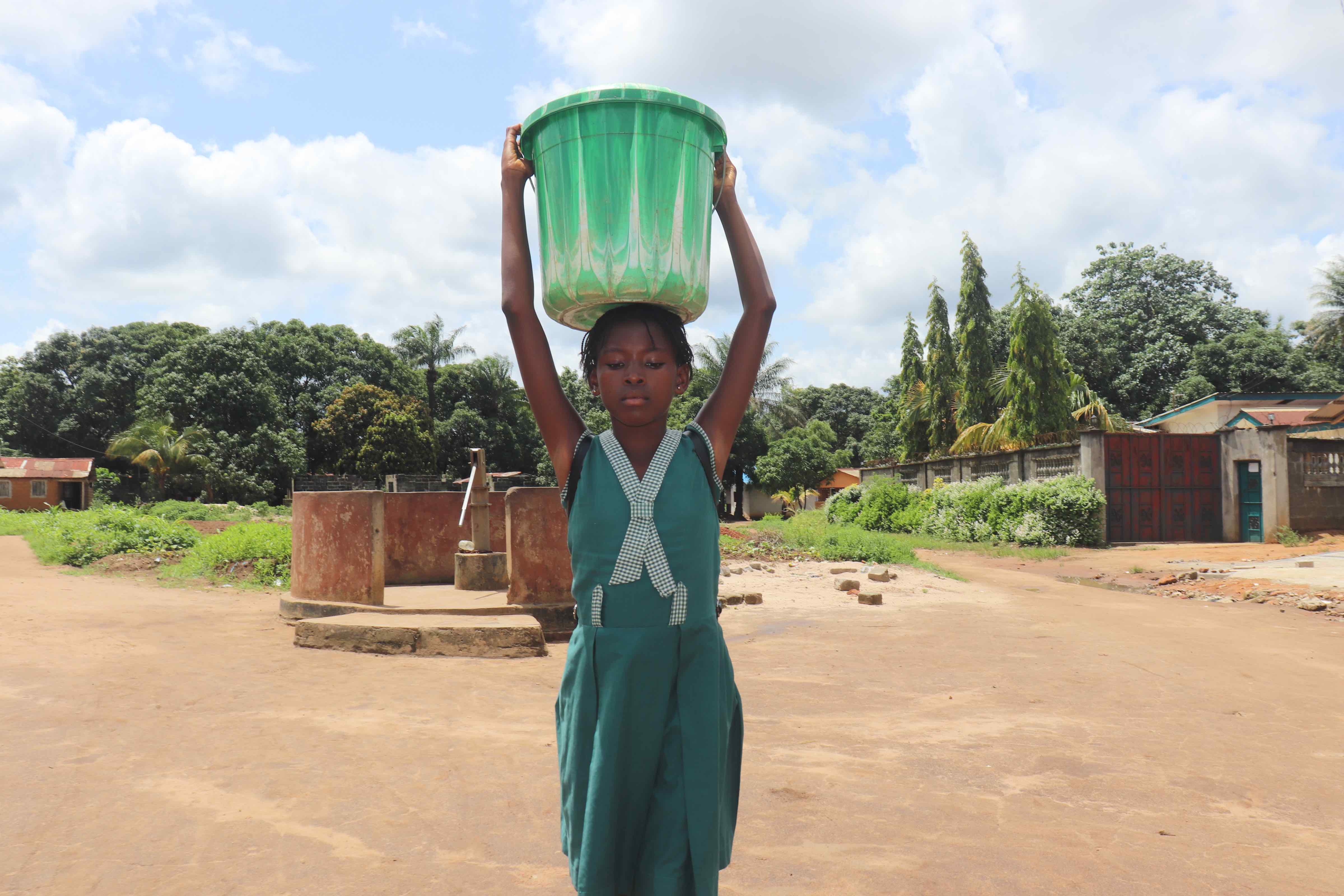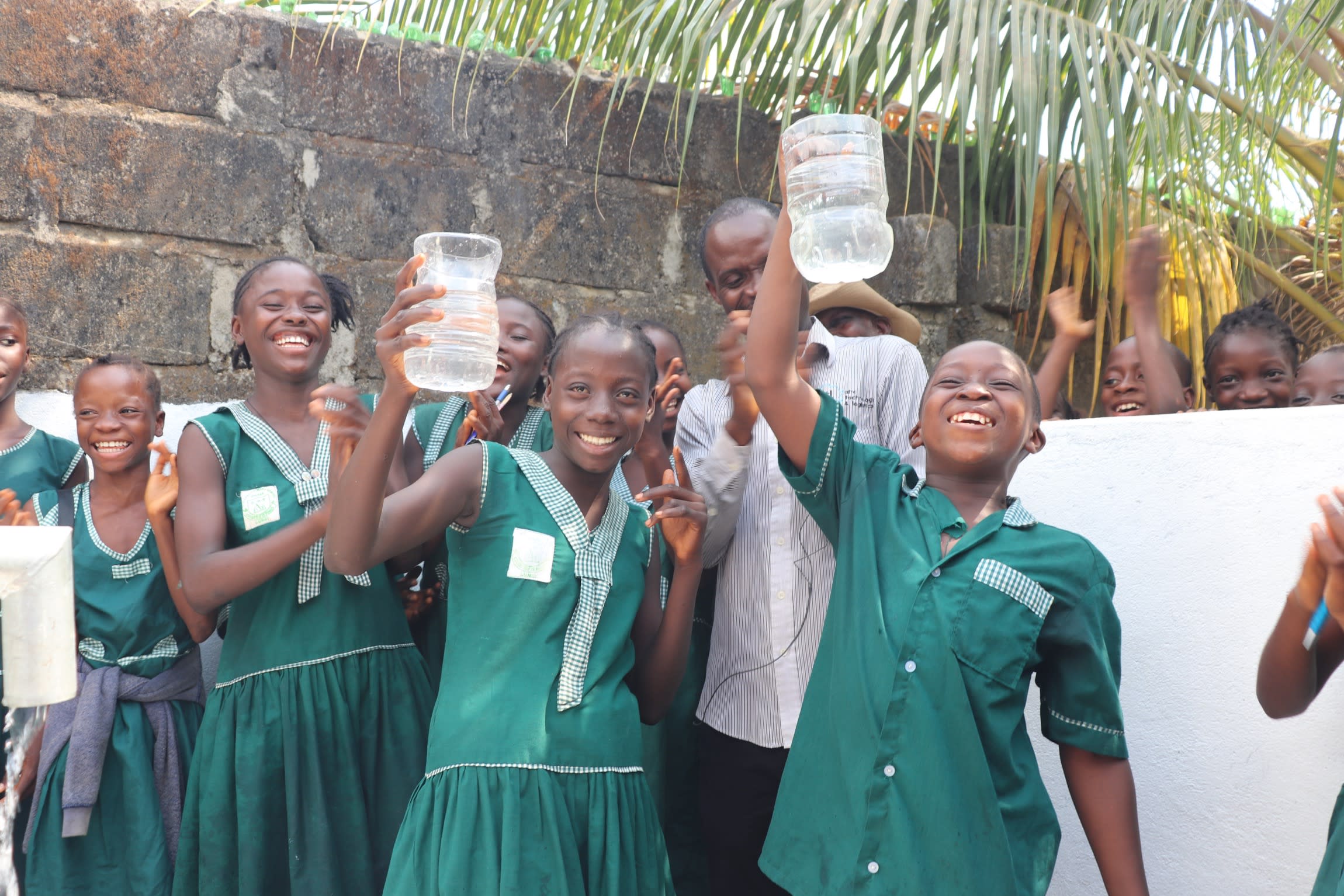From April to June, the well at Christal Primary School always goes dry. This year, this non-functional period has dragged on longer than normal, leaving the school administration to wonder whether the well that serves the 171 students and staff has dried up for good.
For the children whose families have more money, this means buying packet water to drink during lunchtime. For the poorer children, however, this means either missing class to go and search for water within the community, or going without water all day.

Christina Davies, the school's proprietor, is well aware of the school's water difficulties. "The school is presently challenged with water for drinking and to use the sanitation facilities. Our students go to the nearest water point to fetch water for the school. The little water they fetched could not solve the water crisis at the school."
"The school pump is not working," said Abdulai, a 12-year-old student. "It is hard to get water to drink at the school during lunch. I don’t have money to buy packet water. Sometimes I had to go to the shop opposite the school to beg for water to drink."
Sometimes, a nearby church allows students to fetch water from its borehole well, but other times, the well is locked up and students are forced to go out into the community to search for water and wait in queues when alternate sources are congested. In their desperation, some of the students have resorted to stealing water from their smaller peers.
"It is hard to control the students, especially when they are desperately thirsty for water to drink," Christina continued. "Some even go out and never return back to school on that day."
Water scarcity doesn't just cause thirst and lack of concentration and class time. It also means proper hygiene practices are not being observed.
"I use the toilet without water to clean myself," Abdulai explained. "Our teachers told us not to waste the water."
Students are appointed every morning to fetch water from the church's well to the school for sanitation purposes. However, the small amount fetched is not nearly enough to serve the school’s population.

"It is again difficult to control the hygiene status of the sanitation facility, especially the toilets," Christina said.
The proposed water project is to convert the school's dug well into a borehole well, which will mean water will be available for the school's students and staff year-round. Then, the school will have a sustainable and safe drinking water source. This will also help the students to make good use of the sanitation facilities at the school compound. They will not need to search for water in the community. Those who could not afford to buy packet water to drink will have a generous supply of safe water at the school. This, in turn, will reduce waterborne diseases.
Here’s what we’re going to do about it:
Well Rehabilitation
The well marked for this overhaul needs major work to supply adequate, clean water to the community year round. The pump will be removed, and a hand auger will be lowered inside and powered by a drill team. This hand auger will allow the team to drill several meters deeper to hit a sufficient water column that will ensure the well supplies water throughout all seasons.
As the team drills, casing will be installed, transforming the bottom of this hand-dug well into a borehole. PVC piping will connect this lower system directly to the pump, a construction that we know will also improve the quality of water.
Once this plan is implemented, everyone within the community will have access to safe drinking water in both quality and quantity, even through the dry months.
Hygiene and Sanitation Training
There will be hygiene and sanitation training sessions offered for three days in a row.
After our visit, the hygiene and sanitation trainer decided it would be best to teach community members how to build a tippy tap (a hand-washing station built with a jerrycan, string, and sticks). They will use these tippy taps for handwashing demonstrations, and will also teach about other tools like dish racks and the importance of properly penning in animals.
These trainings will also strengthen the water user committee that manages and maintains this well. They enforce proper behavior and report to us whenever they need our help solving a serious problem, like a pump breakdown.

 Borehole Well and Hand Pump
Borehole Well and Hand Pump

















 "This training is so meaningful to me," said Mrs. Davies. "I am so delighted to witness it. Through this training, I have gained the opportunity to gain and experience new things, especially the tippy-tap construction that will be of great benefit to me and the school at large."
"This training is so meaningful to me," said Mrs. Davies. "I am so delighted to witness it. Through this training, I have gained the opportunity to gain and experience new things, especially the tippy-tap construction that will be of great benefit to me and the school at large."












